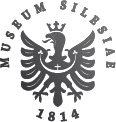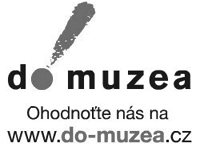Slezský sborník
rok 2011
ročník 109
číslo 1–2
Obsah / Contents
Studie / Articles (s. 5–111)
Viktor Pohanka: Proměny zeměpanské domény v prostoru středověkého Ratibořského předměstí Opavy
s. 5–32
The transitions of the landlord domain in the area of medieval Ratibor suburb of Opava town
The presented study deals with the problems of the landlord domain of Opava dukes in the (largest) suburb of the most important town of their small country. In the first, larger part the author tries to register border changes of chamber goods in the foreland of Opava on the basis of fragments of material sources; in the second part he briefly evaluates the issue of disintegration of the landlord domain in the defined area. The work joins the discussion about extensive problems of administration of the whole chamber goods and on general level also to problems of the process of collapse of authority status of Opava dukes in the late Middle Ages.
Key Words: administration, dukes of Opava, Kylešovice, landlord domain, late Middle Ages, Opava, Ratibor suburb, Silesia
Stanislav Výtisk: Příspěvek k procesu obsazování úřadu zemského hejtmana na Opavsku v 16. století
s. 33–46
A Contribution to the Process of Appointing the Sheriff’s Office in 16th Century Duchy of Opava
This study examines the procedure of a candidate nomination for the sheriff’s office in 16th century Duchy of Opava. On the basis of a comparative analysis with similar issues in Moravian Margraviate the author examines identical and dissimilar aspects of the nominating process in the two lands of the Bohemian crown and at the same time demonstrates the individual models used in the selection of the highest land representative during the 16th century. The estate’s degree of participation on the nominating process is examined as well. While in Moravia during the reign of Ferdinand I the estate’s influence on the nominating process of the sheriff was circumscribed, in Duchy of Opava the same established system of forwarding sealed missives resulted in a factual increase of the estate’s influence on the sheriff’s nominating process.
Key Words: Administrative history, Duchy of Opava, nobility, sheriff (Landeshauptmann), 16th century
Pavel Kladiwa: Vzpomínky Hanse Kudlicha
s. 47–66
Memories of Hans Kudlich
The study is a detailed analysis of three-volume memories of Hans Kudlich (Rückblicke und Erinnerungen). A lot of space is dedicated to the comparison of the first and second edition of Kudlich’s memoir – large, especially anti-cleric passages from the original Kudlich’s text were omitted from the second edition in 1923. The author is trying to analyze the limits of Kudlich’s view on the revolution of 1848.
Key Words: the Habsburg monarchy, revolution of 1848, liberalism, abolition of serfdom, Czech-German relations
Ivo Baran: Polští socialisté na československém Těšínsku a Ostravsku v letech nastupující hospodářské krize (do ledna 1934)
s. 67–96
Polish socialists in the Czechoslovakian Těšín and Ostrava Regions in the Years of the Great Crisis (till January 1934)
This study is the first attempt of a general description of the activities of the Polish Socialist Workers Party in the Těšín-Silesia and the Ostrava region in the years of the Great Crisis. The Polish Socialists in the elections in 1929 got a deputy mandate in the coalition with other parties of the Polish minority and Jewish parties. Within these years, Polish Socialists cooperated with other parties of the Polish minority and with the Polish Consulate in Moravská Ostrava as well although the ruling regime in Poland, so-called „sanacja“, was authoritative and undemocratic. In this study, materials from the Provincial Archives in Opava, the Moravian Provincial Archives in Brno and from the contemporary press were mainly used.
Key Words: ethnic minorities, Great Crisis, Czechoslovakia, Poland, Polska Socjalistyczna Partia Robotnicza, Silesia, social democracy
Joanna Hytrek-Hryciuk: „Tu Ruski jest szefem!“. Działalność tymczasowej administracji radzieckiej na Dolnym Śląsku (1945–1946)
s. 97–111
„Tu Ruski jest szefem!“. Activity of temporary Soviet administration in Lower Silesia (1945–1946)
The presented study analyses the activity of the temporary Soviet administration in Lower Silesia in the period from January 1945 till the end of 1946. The activities of military headquarters and temporary German civil governments created by them had a radical impact not only on relations between the German and Polish inhabitants and the Red Army soldiers, but also on the whole process of assumption of the region by the Polish administration.
Key Words: 1945–1946, Lower Silesia, Poland, USSR, temporary Soviet administration, secondary German administration, military headquarters
Recenze / Reviews (s. 112–127)
Zprávy o literatuře / Brief Notices (s. 128–143)
Kronika / Chronicle (s. 144–157)
Bibliografická příloha / Bibliography (s. 158–159)
Poslední aktualizace článku: 06.10.2015
Vytisknout celý článek







